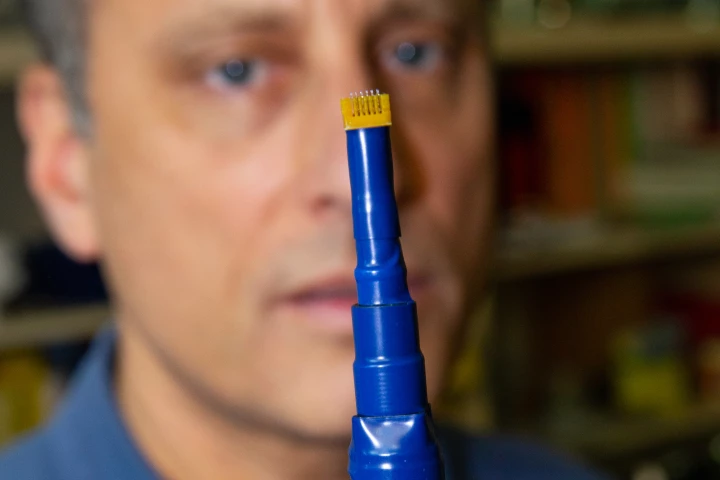Emory University
-
A decade-long global review has confirmed that good heart health, measured by diet, exercise, and other habits, not only protects against heart disease but also supports nearly every organ system, reducing risks of dementia, cancer, and more.
-
E. coli is arguably the most well-studied organism on Earth, but scientists have now discovered a new behavior that’s almost never seen in bacteria. The normally single-celled organisms have shown signs of previously unknown multicellular phases.
-
Nerve damage can result in pain that lasts for years, or even a lifetime. There may be new hope, however, as scientists now report that exposing damaged nerves to a cold needle can cause them to regenerate, drastically reducing pain.
-
The world has surpassed 500 million officially recorded COVID-19 cases, according to data from Johns Hopkins University. Other researchers estimate nearly half of the world’s total population has likely been infected at least once with SARS-CoV-2.
-
Researchers at Harvard and Emory have created a biohybrid fish out of human heart cells that swims autonomously for months at a time as the cells beat. The project is a sidestep on the way to eventually growing new functional hearts for transplant.
-
Although electroporation technology is very effective at delivering DNA-based vaccines, the required equipment is bulky, complex and expensive. Now, however, scientists have shown that a converted barbecue lighter is capable of doing the job.
-
Oncolytic viruses selectively kill cancer cells, but this can be ineffective if it alerts the immune system. Now scientists have tweaked these viruses to avoid detection by the immune system, allowing them to track down cancer even after it’s spread.
-
A novel technique that involves directing low-grade radiofrequency energy through sensory nerves is shaping as a promising treatment for arthritis, after delivering significant and long-lasting decreases in pain in an early study.
-
Neuroscientists discovered that electrically stimulating the cingulum brain region creates a mild euphoria complete with laughter, and used it to calm down a patient undergoing a brain surgery where she needed to stay awake. It could be used as a treatment for anxiety, depression or chronic pain.
-
Currently, the most accurate method of checking for anemia is to draw a blood sample and conduct a count of a patient's red blood cells, which contain iron-rich hemoglobin. Soon, however, a smartphone app may be able to non-invasively do the same job.
-
A key culprit behind the painful sting of a fire ant could prove a key component in new creams to treat psoriasis. New research has found that a key compound in the creature's toxic venom can combat some of the symptoms of psoriasis, by helping to repair the barrier function of the skin.
-
Climbing stairs is a chore that's inspired some creative alternatives. Now a team from Georgia Tech and Emory University has developed energy-recycling stairs that take some of the pressure off the knees and ankles, by storing energy from people descending then giving it back as they climb up.
Load More











